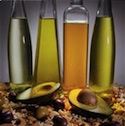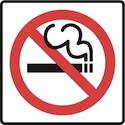ESHRE2012: Lifestyle factors associated with infertility and IVF success rates
Istanbul, 3 July 2012
The 28th Annual Meeting of the European Society of Human Reproduction and Embryology brought together more than 9,000 delegates in Istanbul. According to ESHRE, Europe leads the world in the field of Assisted Reproductive Technologies (ART), initiating approximately 71% of all reported ART cycles.
 Three researchers today presented compelling evidence that what we eat, drink, and smoke may not only contribute to infertility but also affect IVF success rates. Since an estimated 30-40% of women with endometriosis may also have fertility issues, this is definitely worth taking note of.
Three researchers today presented compelling evidence that what we eat, drink, and smoke may not only contribute to infertility but also affect IVF success rates. Since an estimated 30-40% of women with endometriosis may also have fertility issues, this is definitely worth taking note of.
Dietary fats
 A high intake of certain dietary fats is associated with lower live birth rates, decreased oocyte (egg) numbers, and poorer embryo quality in IVF, according to Professor Jorge Chavarro from the Harvard School of Public Health.
A high intake of certain dietary fats is associated with lower live birth rates, decreased oocyte (egg) numbers, and poorer embryo quality in IVF, according to Professor Jorge Chavarro from the Harvard School of Public Health.
The study investigated the effect of dietary fat among 147 women having IVF at the Massachusetts General Hospital Fertility Center.
It was found that women with higher intakes of total fat had fewer eggs retrieved than women consuming less fat – with results being driven by the level of saturated fats.
Polyunsaturated fats consumption was found to have a negative impact on embryo quality, and fat consumption was also associated with clinical outcomes. Monounsaturated fats was related to higher odds of a live birth – 3.45 times higher than in women with the lowest intake!
While these results are interesting, this is the first time to our knowledge that dietary fats have been linked to treatment outcomes in IVF. So, it is important that our results are replicated in other studies before making strong recommendations about fat intake to women having infertility.
said professor Chavarro.
→ Full press release from ESHRE
Smoking is BAD for the Fallopian tube
 Cigarette smoke reduces the production of a Fallopian tube gene known as ‘BAD’, which may help explain the link between smoking and ectopic pregnancy, according to Drs Andrew Horne and Colin Duncan from the Medical Research Council Centre for Reproductive Health in Edinburgh.
Cigarette smoke reduces the production of a Fallopian tube gene known as ‘BAD’, which may help explain the link between smoking and ectopic pregnancy, according to Drs Andrew Horne and Colin Duncan from the Medical Research Council Centre for Reproductive Health in Edinburgh.
Ectopic pregnancy, which occurs in up to 2% of all pregnancies, is the result of a combination of factors affecting the transport of the developing embryo from the Fallopian tube to the uterus and changes in the tubal environment which allow early implantation to occur.
In this study Dr Horne’s group first exposed cells from the Fallopian tube to a breakdown product of nicotine called cotinine, and showed that it had a negative effect on genes known to be associated with cell death (apoptosis) – in particular the ‘BAD’ gene.
In the second part of the study the researchers showed that BAD expression was reduced in the Fallopian tube of women, who were smokers.
According to Dr Horne, the results of this study suggest that the reduced production of the BAD gene in the Fallopian tube leads to an environment like that of the uterus, which consequently allows ectopic pregnancy to occur.
Our research is exciting because it provides new scientific evidence to help understand why women, who smoke, are more likely to have ectopic pregnancies.
said Dr Horne.
A review conducted three years ago confirmed that smoking patients have a significantly lower chance of clinical pregnancy and live birth per IVF cycle, as well as a significantly higher risk of spontaneous miscarriage and ectopic pregnancy than non-smoking patients [1].
Perhaps we now have an explanation for this?
→ Full press release from ESHRE
Coffee may reduce the chance of IVF success
 Women who drink five or more cups of coffee a day may reduce their chance of success IVF treatment by 50%, according to Dr Ulrik Schioler Kesmodel from the Fertility Clinic of Aarhus University Hospital in Denmark.
Women who drink five or more cups of coffee a day may reduce their chance of success IVF treatment by 50%, according to Dr Ulrik Schioler Kesmodel from the Fertility Clinic of Aarhus University Hospital in Denmark.
The investigators prospectively followed up 3,959 IVF and ICSI patients, and described the adverse effect of coffee as “comparable to the detrimental effect of smoking”.
The analysis showed that the ‘relative risk’ of pregnancy was reduced by 50% of women who reported drinking five or more cups of coffee per day at the start of IVF/ICSI treatment – and the chance of live birth was reduced by 40%. No effect was observed when the patients reporting drinking less than five cups a day.
There is limited evidence about coffee in the literature so we would not wish to worry IVF patients unnecessarily, but it does seem reasonable – based on our results – that women should not drink more than five cups of coffee a day when having IVF.
said Dr Kesmodel.
Whereas a Cochrane review from 2009 found there was insufficient evidence to confirm or deny the effect of drinking coffee on pregnancy outcome, a 2004 study has previously showed that time-to-pregnancy was significantly extended in women when coffee – or tea – intake was more than six cups a day (or when the male partner consumed more than 20 alcoholic units per week) [2].
→ Full press release from ESHRE
References
- Waylen AL, et al. Effects on cigarette smoking upon clinical outcomes of assisted reproduction: a meta analysis. Hum Reprod Update 2009;15:31-44.
- Hassan MAM and Killick SR. Negative lifestyle is associated with a significant reduction in fecundity. Fertil Steril 2004;81:384-92.






